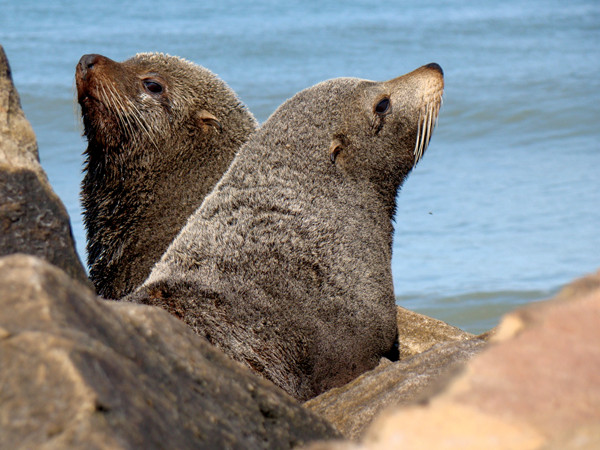
by Mary Caperton Morton Tuesday, December 9, 2014

Fur seals in Argentina. Credit: Ricardo Bastida.
When Europeans arrived in the Americas they introduced an array of new infectious diseases that decimated the native populations. Now, a new genetics-based study published in Nature shows that the emergence of tuberculosis in Peru seems to have predated the arrival of the Spanish — and that seals and sea lions may be to blame instead for the ancient infections.
Genomic sequencing was performed on three ancient mycobacterial specimens collected from human remains from Peru that showed skeletal lesions associated with TB. The tests showed that the Mycobacterium tuberculosis complex that causes disease in people was active in the Americas about 1,000 years ago — several hundred years before the arrival of Europeans in the New World.
The older strains of tuberculosis are genetically distinct from known human-adapted forms and are most closely related to those found in seals and sea lions. These pinnipeds may have acquired the disease from an animal host in Africa during the Holocene and then carried the disease to human populations across the Atlantic, according to lead author Kirsten I. Bos of the University of Tübingen in Germany and colleagues.
Modern M. tuberculosis strains from the Americas are closely related to those from Europe, suggesting that the less dangerous form carried in seals was replaced by the more virulent human form after contact with Europeans. Seal-borne TB has caused outbreaks in humans in modern times, usually in association with zoos. Tuberculosis remains one of the most widespread and dangerous infectious diseases, with as many as one-third of the world’s population infected with latent TB and an untreated mortality rate above 50 percent.
© 2008-2021. All rights reserved. Any copying, redistribution or retransmission of any of the contents of this service without the expressed written permission of the American Geosciences Institute is expressly prohibited. Click here for all copyright requests.